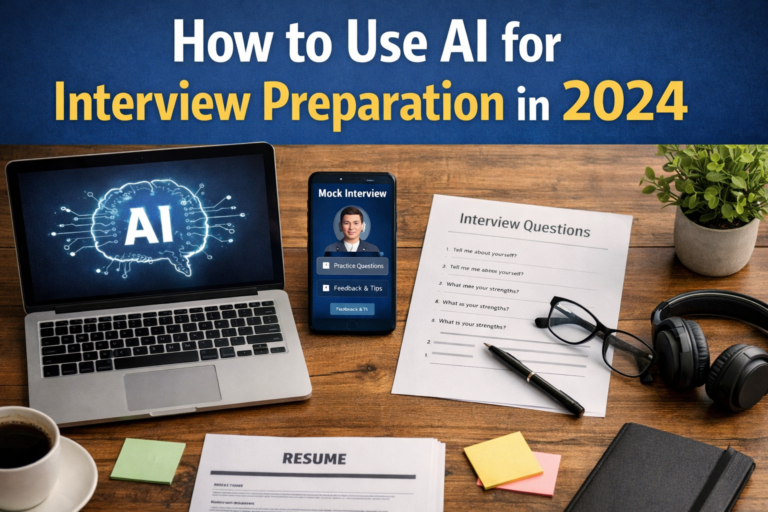Quantum Computing Consider a world where computers can tackle challenges that are beyond the reach of today’s fastest supercomputers. A world where cryptography is unbreakable, optimization is trivial and simulations are indistinguishable from our reality. Welcome to the world of Quantum Computing.
Quantum computing represents a new and exciting frontier capable of effecting change in medicine, finance, climate modelling, cybersecurity and more. Scientists are building devices that will process information exponentially faster and more securely than conventional systems, utilizing the bizarre and counterintuitive rules of quantum mechanics.

Why Is Quantum Computing Important?
- Solving Complex Problems: Quantum computers can tackle optimization problems, simulate complex systems, and potentially crack intricate codes.
- Unbreakable Cryptography: Quantum computing offers the possibility of developing encryption techniques that are impossible to break, securing sensitive data against future threats.
- Speed and Efficiency: Quantum computers process information exponentially faster than classical computers, significantly reducing computation times.
- Simulating Reality: From drug discovery to advanced materials, quantum computers can simulate complex systems that traditional computers cannot, leading to groundbreaking innovations.
Quantum Computing Simplified
Before diving into quantum computing, it’s essential to understand how classical computers operate.
Classical Computing
Classical computers use “bits” to store and process information. A bit is binary, meaning it can be either 0 or 1—much like a light switch that is either on or off. These computers use billions of bits to perform various calculations and operations in a sequential manner.
Quantum Computing
Quantum computers use “qubits” (quantum bits), which are fundamentally different from classical bits because they can represent:
- 0
- 1
- Both 0 and 1 simultaneously (thanks to a phenomenon called superposition)
- Connected states that affect each other, even over great distances (a concept known as entanglement)
Key Differences Between Classical and Quantum Computing
| Classical Computing | Quantum Computing | |
|---|---|---|
| Bits | Either 0 or 1 | Qubits (0, 1, or both simultaneously) |
| Processing | Sequential | Parallel (simultaneous processing) |
| Scalability | Limited exponential growth | Exponential scaling with qubits |
How Quantum Computers Solve Problems Faster
Quantum computers have the power to solve certain types of problems simultaneously faster than classical ones. Here is how:
- Parallel Processing: Through superposition, qubits can explore multiple possibilities simultaneously, reducing the time needed for computation.
- Exponential Scaling: Quantum computers can handle problems that grow exponentially with size, a task classical computers struggle to achieve.
- Optimized Solutions: Quantum computers can efficiently find optimal solutions, especially for complex systems in logistics, finance, and beyond tasks.
Real-World Advantages of Quantum Computing
- Cryptography: While quantum computers threaten existing encryption methods, they also pave the way for unbreakable cryptographic systems.
- Optimization: From financial portfolios to global logistics, quantum computing can optimize systems far more efficiently than ever before.
- Simulation: Quantum computers can simulate molecules and materials in ways that could revolutionize drug development and material science.
Quantum Mechanics: The Foundation of Quantum Computing
To understand quantum computing, one must first grasp the basics of quantum mechanics—a branch of physics that studies the behaviour of tiny particles like atoms and photons. Here are some key concepts:
1. Superposition
- Definition: A qubit can exist in multiple states simultaneously.
- Analogy: Think of a spinning coin. While in the air, it is both heads and tails at once. When it lands, it becomes one or the other.
- Simplified: Superposition allows qubits to process multiple possibilities at the same time.
2. Entanglement
- Definition: Qubits can be linked so that the state of one instantly influences the state of another, even across vast distances.
- Analogy: Two dancers performing a synchronized routine if one spins, the other spins instantly, regardless of how far apart they are.
- Simplified: Entangled qubits remain interconnected, allowing for secure communication and parallel computations.
3. Quantum Measurement
- Definition: Observing a qubit’s state forces it to choose a definite position, collapsing its superposition.
- Analogy: Taking a picture of a spinning coin freezes its state as either heads or tails.
- Simplified: Measurement disrupts a qubit’s superposition, making it behave more like a classical bit.
4. Quantum Interference
- Definition: Qubits can interact, causing their probabilities to reinforce or cancel each other out.
- Analogy: When two waves collide, they can either amplify or cancel out.
- Simplified: This property enables complex and efficient computations.
- Quantum Computing
Qubits: The Building Blocks of Quantum Computing
Qubits are the fundamental units of information in quantum computing. Unlike classical bits, qubits can exist in multiple states simultaneously, enabling parallel processing and efficient calculations.
How Qubits Work:
- Quantum Register: Qubits are stored in a collection called a quantum register.
- Quantum Operations: Quantum gates manipulate qubits, enabling them to perform computations.
- Quantum Measurement: Qubits are measured to extract the results of computations.
Common Quantum Gates:
- Hadamard Gate (H): Creates superposition.
- Pauli Gates (X, Y, Z): Manipulate qubit states in various ways.
- CNOT Gate: Controls one qubit based on the state of another.
- SWAP Gate: Exchanges the states of two qubits.
Quantum Algorithms and Their Power
Quantum algorithms are designed to take advantage of the unique properties of qubits:
- Shor’s Algorithm: Efficiently factors large numbers, threatening current cryptographic systems.
- Grover’s Algorithm: Speeds up searching through unsorted databases.
- Quantum Approximate Optimization Algorithm (QAOA): Useful for solving complex optimization problems.
Potential Power of Quantum Algorithms
- Exponential Speedup: Certain problems can be solved exponentially faster than classical algorithms.
- Simulations: Quantum computers can model complex quantum systems.
- Optimization: They can optimize processes in ways that were previously impractical.
Quantum Mechanics: The Foundation of Quantum Computing
1. Superposition:
- Qubits can exist in multiple states simultaneously, like a spinning coin that is both heads and tails until observed.
- This property allows qubits to process many possibilities at once.
2. Entanglement:
- Qubits can be linked so that the state of one instantly affects the other, even over large distances.
- This phenomenon enables secure communication and parallel processing.
3. Quantum Measurement:
- Observing a qubit forces it to settle into one state, disrupting its superposition.
- Once observed, a qubit acts like a classical bit, losing its quantum properties.
4. Quantum Interference:
- Qubits can interact in ways that amplify or cancel out certain probabilities.
- This property facilitates efficient and complex computations.
5. Qubits: The Building Blocks of Quantum Computing
Qubits are the core units of information in quantum computing, capable of existing in multiple states at once. This property allows for parallel processing and efficient calculations, setting quantum computers apart from classical systems.
How Qubits Work
- Quantum Register: Qubits are organized and stored in quantum registers.
- Quantum Operations: Quantum gates like the Hadamard, Pauli (X, Y, Z), CNOT, and SWAP gates manipulate qubits to perform computations.
- Quantum Measurement: Extracts computation results, collapsing qubit states into classical information.
Quantum Algorithms and Their Impact
- Shor’s Algorithm: Breaks encryption by factoring large numbers efficiently.
- Grover’s Algorithm: Accelerates search tasks in unsorted databases.
- QAOA: Optimizes complex systems, valuable for logistics and resource management.
Potential Power
Quantum algorithms offer exponential speedup, enabling fast problem-solving, complex simulations, and optimized processes that classical computers cannot efficiently handle.
Challenges and Limitations
Despite their promise, quantum computers face significant hurdles:
- Error Correction: Qubits are prone to errors and require sophisticated correction techniques.
- Scalability: Building and maintaining large numbers of qubits remains a challenge.
- Quantum Noise: Environmental interference can disrupt quantum states.
Table of Contents
Conclusion
Quantum computing holds the potential to revolutionize the world as we know it, from breaking encryption to transforming medicine and materials science. While challenges remain, the ongoing research and development promise a future where quantum computers could reshape our technological landscape.




The applications of quantum computing, powered by Willow, are vast and varied. In fields like drug discovery, Willow could model molecular structures that classical computers cannot even approximate. In material science, it could simulate new materials with unprecedented precision. Additionally, Willow’s capabilities could transform industries such as logistics, finance, and artificial intelligence, solving optimization problems at an unprecedented scale. Read About Quantum Computer